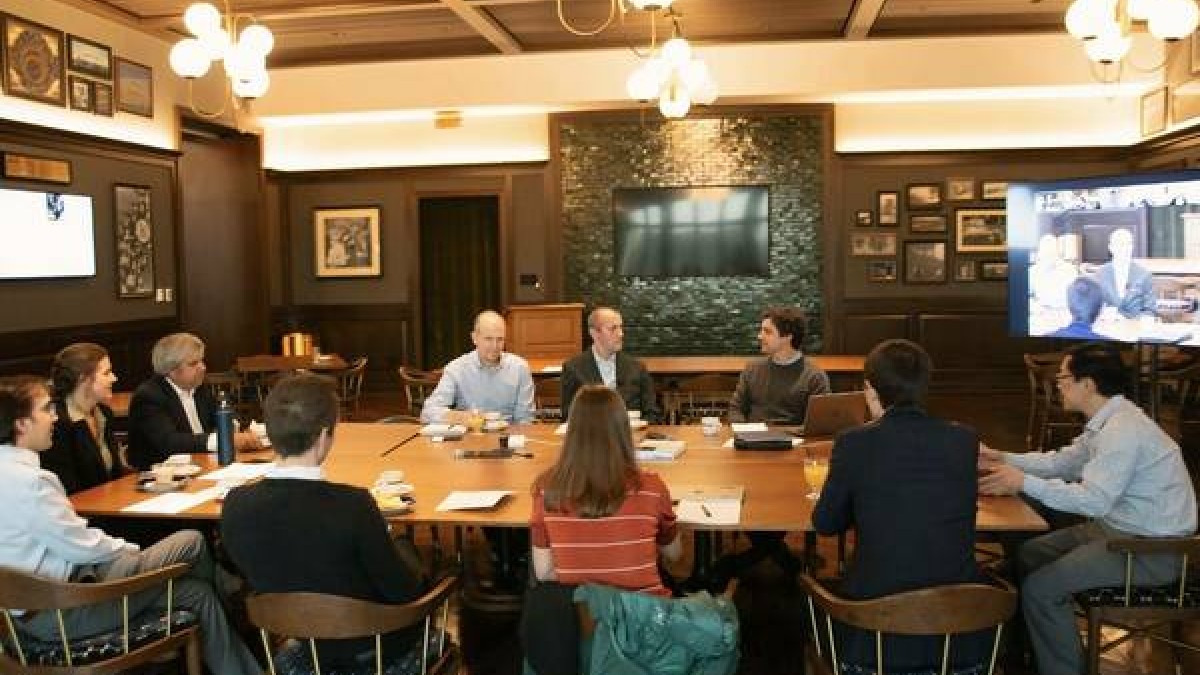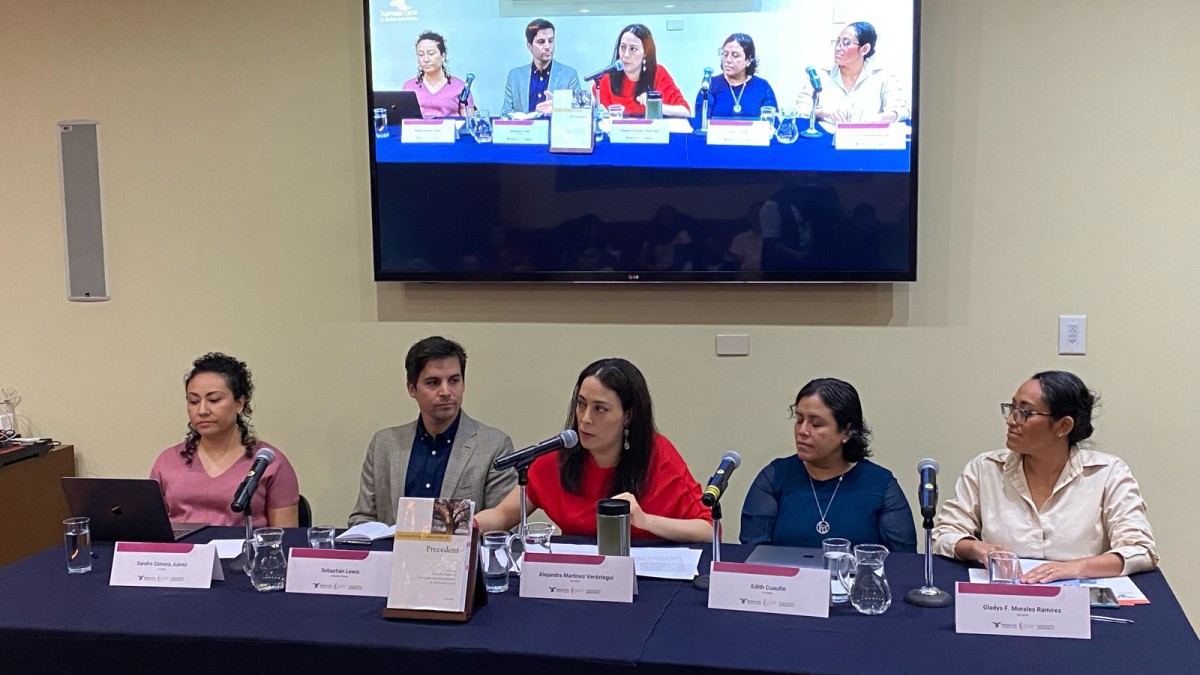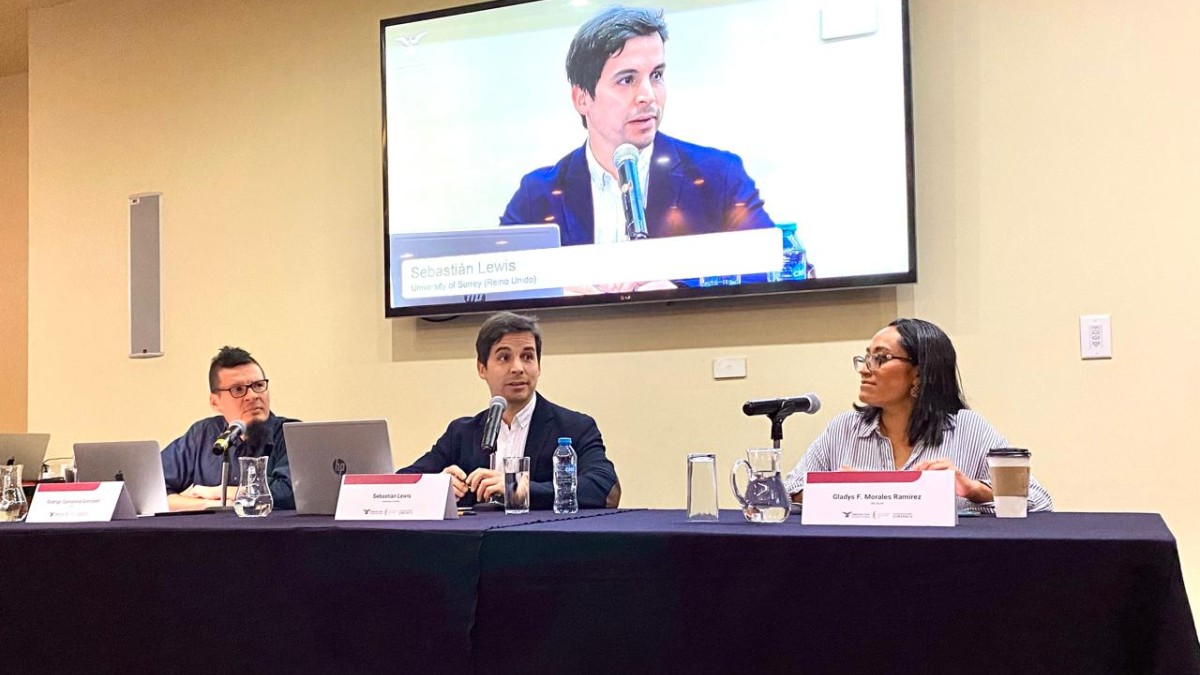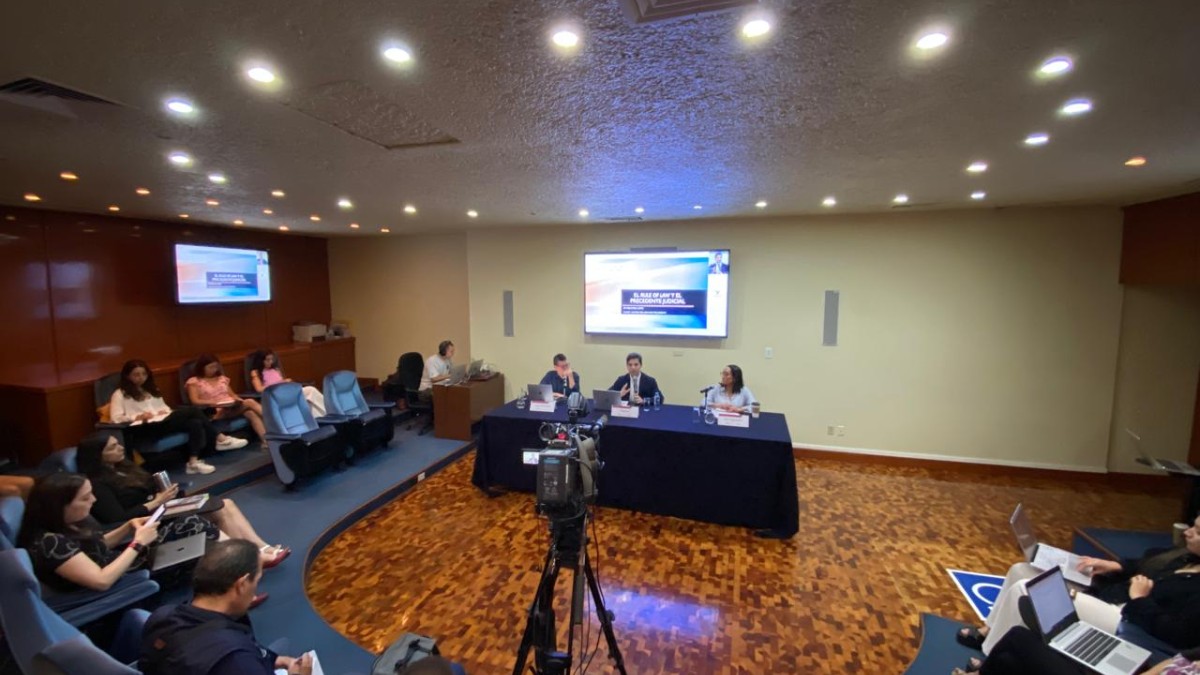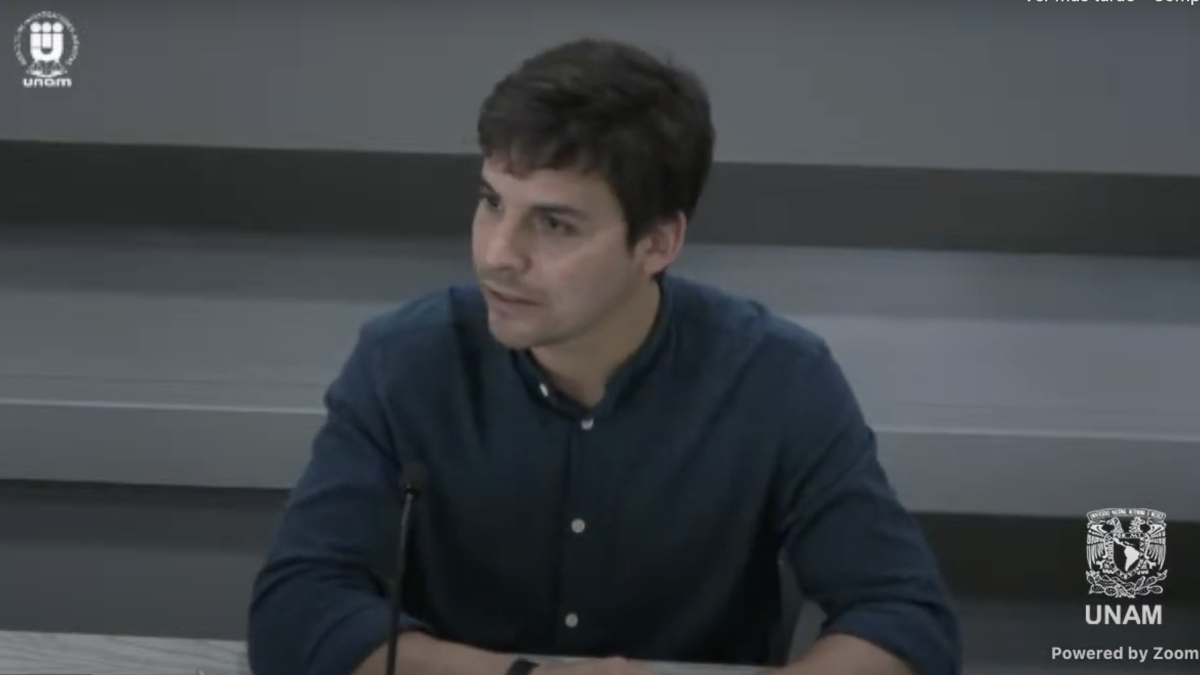Dr Sebastian Lewis
About
Biography
Sebastian is a Fellow in Law and Director of Communications, External Engagement, and Strategic Partnerships of the Surrey Centre for Law and Philosophy.
Before joining Surrey, Sebastian completed his doctorate in Law at the University of Oxford. He also holds a Master of Laws at Harvard Law School and is a qualified lawyer in Chile (where he obtained his LLB at Universidad de los Andes).
Sebastian's work in jurisprudence focuses on the nature of legal sources, legal reasoning, the Rule of Law, and various approaches to non-delegated legal authority. His work in public law theory focuses on the constitutional role of judges, judicial accountability, judicial duty, judicial powers, and separation of powers.
Sebastian's research has been published in the Oxford Journal of Legal Studies, The Modern Law Review, Law and Philosophy, Jurisprudence, Canadian Journal of Law and Jurisprudence, and The Journal of Comparative Law. He is also one of the editors of Philosophical Foundations of Precedent (OUP 2023).
Sebastian's was previously a Lecturer in Law at Oriel College Oxford, where he taught Jurisprudence, Constitutional Law and Administrative Law. He has also held teaching positions at King's College London, the LSE, and various colleges at Oxford.
Areas of specialism
University roles and responsibilities
- Director of Communications, External Engagement, and Strategic Partnerships | Surrey Centre for Law and Philosophy
- Module Convenor for Public Law 1 (Constitutional Law)
- PGR Rep
News
In the media
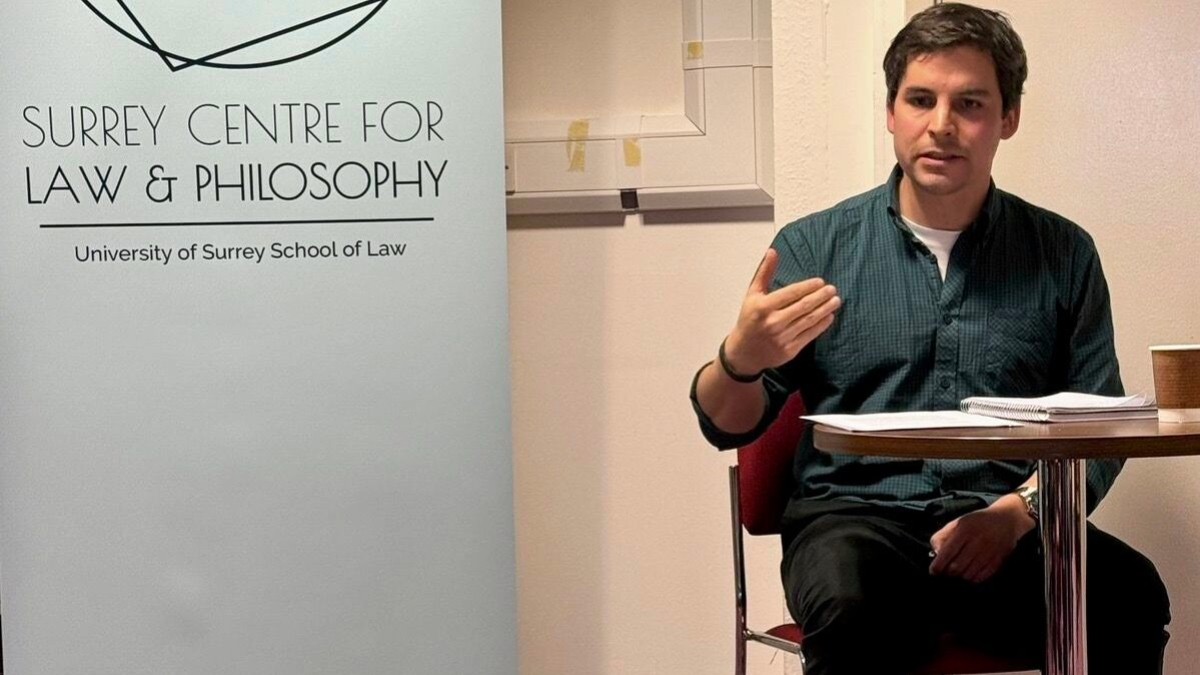
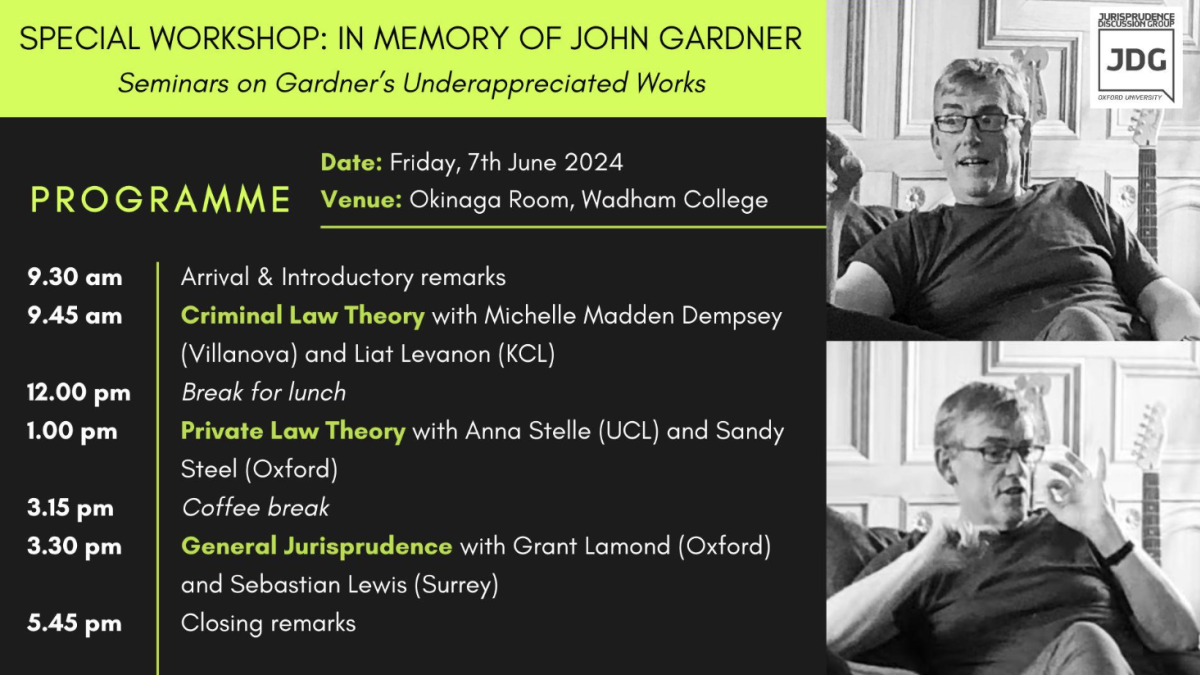
ResearchResearch interests
Jurisprudence (general jurisprudence, legal reasoning, sources of law)
Public Law Theory (constitutional theory, administrative law theory, EU Law theory).
Research interests
Jurisprudence (general jurisprudence, legal reasoning, sources of law)
Public Law Theory (constitutional theory, administrative law theory, EU Law theory).
Supervision
Postgraduate research supervision
Sebastian is happy to supervise work on Jurisprudence and Public Law Theory.
Teaching
Public Law I
Publications
Highlights
Lewis, Sebastian
Equity has traditionally been understood as a judicial corrective to the generality of statutory law caused by the limited foresight of legislatures. Because of the ad hoc and corrective character of equity, many scholars have seen a tension between the morality of equity and the positivity of law. Equity, John Gardner once suggested, is 'justice's rebellion against law'—insofar as the positive law does not usually authorise the exercise of equity by judges. In this article, I argue that while the exercise of equity requires the exercise of an equitable power, there are good reasons for the law to allow this power. I do so while showing the conditions under which the law could implement the two main historical ways of exercising equity in adjudication. These are equitable interpretation and equitable suspension of the law. In defending this argument, I also offer a brief historical sketch of equity and its connection with the modern approach to the study of implicit exceptions in the law: legal defeasibility.
One of the main moral costs of stare decisis lies in the continuous possibility of entrenching morally deficient decisions in the law. Although legal systems usually make provision for dealing with morally deficient precedents, there are cases in which the legal obligation of later courts to follow one of these precedents is undefeated. This possibility affects the overall justification of stare decisis. One traditional answer to this problem consists in accepting this moral cost, on the belief that the benefits of stare decisis outweigh it. On this view, when there is an undefeated legal obligation to follow a morally deficient precedent, the court must simply follow precedent. In this article, I question this approach and defend an alternative solution. I argue that, under some conditions, a court facing a morally deficient precedent should have the power to either follow the precedent or suspend its application to the parties by ordering a temporary stay of proceedings and referring the case to a higher court with power to overrule the precedent. This proposal entails exercising an equitable power recognised by the legal system, which I defend against three possible objections.
Review Article of Paolo Sandro's The Making of Constitutional Democracy: From Creation to Application of Law.
Philosophical Foundations of Precedent offers a broad, deep, and diverse range of philosophical investigations of the role of precedent in law, adjudication, and morality. The forty chapters present the work of a large and inclusive group of authors which comprises of well-established leaders in the discipline and new voices in legal philosophy.
The magnitude of the resulting project is extraordinary, presenting a diverse array of innovative and creative philosophical investigations of the practice of adhering to past decisions, in law and allied fields of practical reasoning. And by the same token, the contributions elucidate the reasons that courts and other decision-makers may have for departing from what has been done before. The phenomena under investigation include the law and practice of common law and civil jurisdictions around the world.
In addition to its fundamental relevance to common law jurisdictions, this work will be of broad and significant interest to theoretically minded audiences in continental Europe, Latin America, and Asia because it involves an extensive study of practices of precedent in civil law systems as well as common law systems.
This Introduction sets the scene for the forty chapters of Philosophical Foundations of Precedent, pointing out reasons for the range and the depth of the investigations offered in the book. The central question concerning precedent in law is: why should a judicial decision today depend on what a court decided in the past? Any answer to that question generates a tension between the putative value of following previous decisions, and the value of readiness to reform the law. This book offers a broad array of philosophical investigations into the central question and the central tension, and into the variety of ways in which the fact of an earlier decision may be treated as a reason for decision in later cases. The book addresses the nature and authority of precedent and of the forms of reasoning that it involves in common law and civil law systems, and addresses fundamental principles as to how and when to act in accordance with precedent. The Introduction explains the way in which the project of the book emerged as a collaborative, collegial enterprise among a large and inclusive group of established contributors and new voices in legal philosophy.
Why must certain courts in the common law follow precedent? This chapter identifies two approaches to this question: moral and juridical. According to the former, courts must follow precedent whenever there are sufficiently strong moral reasons to ground a moral obligation. According to the latter, courts must follow precedent because their duty is to give effect to the law—and precedents, or at least many of them, constitute sources of law. The upshot of my analysis is that the grounds on which courts may be morally required to follow precedent need not be those on which they are legally bound to do so. The chapter aims to conceptualize these two approaches and the way they interrelate. I will argue that stare decisis is a legal doctrine because morality cannot account for central features of it—for example, the distinction between ratio and obiter, the rules on vertical and horizontal precedent, and the grounds on which certain courts may overrule precedent. But this view may be objected to by proponents of the ‘one-system view’—that is, a new and distinctive approach to jurisprudence which draws from Ronald Dworkin’s late work. I will consider that objection and the problems of this view in accounting for stare decisis.
A general practice of precedent is one that can plausibly apply to any well-functioning legal system. This practice, which can be grounded in the Rule of Law, needs to make it the case that courts always have a legal reason for following relevant precedent – even if the precedent is morally suboptimal, so long as it is not evil. Without this reason, a precedent may be treated as having no legal influence for the later court (‘the Null Model’), and this runs counter to the Rule of Law. On top of this reason, courts may have a general legal obligation to follow precedent – stare decisis – but this risks entrenching morally bad decisions in the law. We need, therefore, a type of reason that lies in between the Null Model and stare decisis as a necessary step for any future justification of stare decisis. But how can courts have a legal reason for following morally suboptimal precedent? They can have that reason, I argue, in virtue of a specific judicial duty, positively laid down in a legal source, which aims to advance the Rule of Law in an institutionalised way. In this article, I aim to explain and justify that judicial duty.
Courts may reason using precedents in various ways, but not all of them satisfy the rule of law. This article provides two ways that are compatible with this ideal and one which is not. In doing so, the article aims to explain the practice of following precedent in law and to offer criteria for evaluating its value. Two claims are defended. First, courts always have a reason to decide precedent-governed disputes by following precedent. This reason is a minimum requirement of the rule of law, and in some cases this reason may be reinforced in the form of an obligation. Secondly, depending on whether courts have a reason or an obligation to follow precedent, two modes of precedential reasoning may be identified. The article explains them in detail. The modes, together with the considerations that are reasons in favour of them or against them, provide a valuable philosophical foundation of precedent-following in law.
La investigación analiza la regla solve et repete en el ordenamiento jurídico de Chile, en concreto, en su legislación, doctrina, y en la jurisprudencia de su Tribunal Constitucional. El trabajo propone tres modalidades de esta regla, sin embargo, sostiene que, en Chile, hoy solo existe una de ellas. Finalmente, el artículo analiza la constitucionalidad de la regla solve et repete, y su posible vulneración a compromisos internacionales suscritos por Chile en materia de protección internacional de los derechos humanos.
The article analyzes the rule solve et repete in Chilean law. In particular, the article describes this rule in the Chilean Acts, in the opinion of Chilean legal scholars, and in the doctrine of the Chilean Constitutional Court. The article proposes three modalities of this rule, but maintains that, today in Chile, only one of them exists. Finally, the article analyzes the constitutionality of the rule solve et repete, and its possible contradiction with the international obligations that Chile has assumed in the context of the international human rights law.
